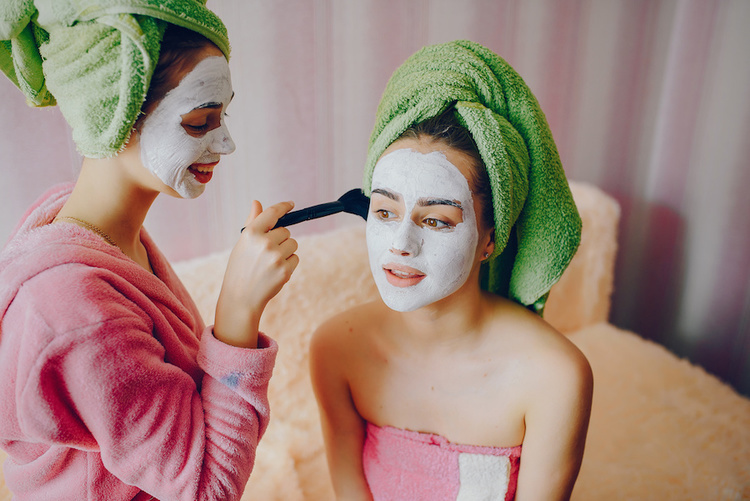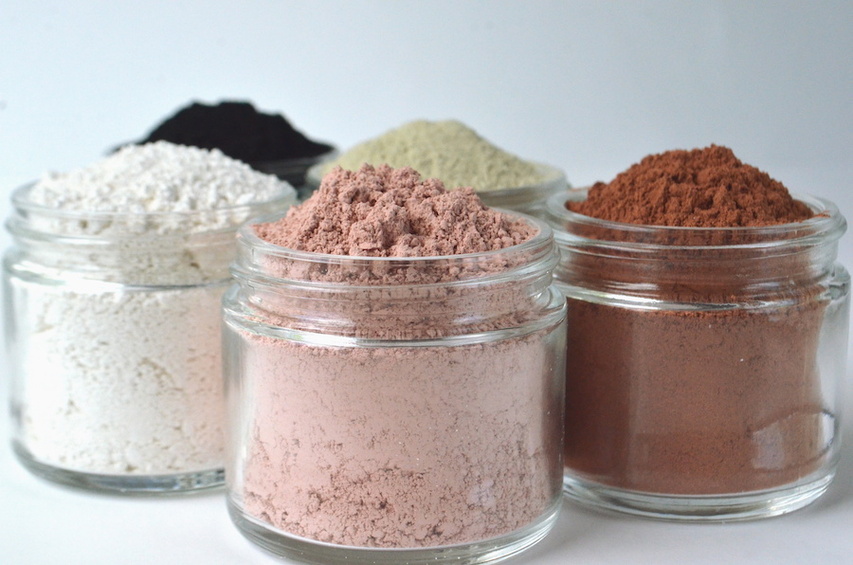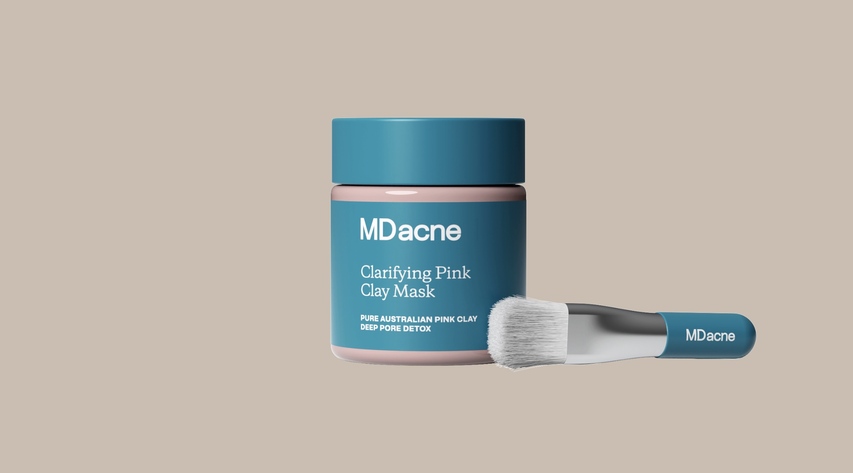Best clay masks for acne - 2025

Face Masks for Acne-Prone Skin: Why Clay Masks Are a Must
If you’ve dealt with acne, you know that adding a face mask to your skincare routine can help detoxify, hydrate, and soothe your skin. Clay masks, in particular, are fantastic for acne-prone, combination, and dry skin. Here’s everything you need to know about the benefits of clay masks, how they work, and choosing the best type for your skin.

Why are clay Masks good for Acne?
Clay is a naturally rich mineral that helps absorb impurities, balance oil production, and even boost collagen, improving skin firmness and reducing fine lines. Clay masks are excellent for unclogging pores, preventing breakouts, and rejuvenating the skin. They’re also versatile, working well on acne, blemishes, and signs of aging like wrinkles.
How do clay masks work?
When applied wet, clay masks create a gentle electrical charge that attracts impurities, toxins, and debris from deep within the pores. Think of clay masks as a purifying ritual that helps cleanse and exfoliate, leaving your skin refreshed, smooth, and radiant.
Best Types of Clay Masks for Acne-Prone Skin
Each clay type offers unique benefits, making it essential to choose the right one for your skin needs. Here’s a breakdown of popular types:
-
Kaolin Clay
- White & Yellow: Gentle and ideal for dry or sensitive skin, high in minerals like calcium and magnesium.
- Red: Great for oily skin due to its strong oil-absorbing properties.
- Pink: Perfect for combination and acne-prone skin, blending the benefits of white and red Kaolin clay to draw out impurities and promote skin renewal.
- Our Pick: MDacne Clarifying Pink Clay Mask – combines Australian pink clay with retinoids, BHAs, and plant-based ingredients to purify and hydrate.
-
Bentonite Clay
- Derived from volcanic ash, Bentonite is highly absorbent, perfect for oily skin and healing acne-prone areas.
- Our Pick: Aztec Secret Indian Healing Clay – a popular choice for deep pore cleansing and healing.
-
French Green Clay
- This plant-derived clay offers mild exfoliation and oil absorption, perfect for oily and acne-prone skin.
- Our Pick: NOW Solutions, European Clay Powder – a pure detox clay mask for facial cleansing.
-
Rhassoul Clay
- Rich in minerals, Rhassoul clay is both exfoliating and gentle, making it suitable for sensitive skin.
- Our Pick: NOW Solutions, Moroccan Red Clay Powder – ideal for sensitive skin and daily use.
Clay mask application tips
While many believe clay masks should be left on until fully dry, it’s better to remove them once they begin to dry but still feel slightly sticky. Over-drying can dehydrate your skin, so rinse off when the mask lightens in color. Afterward, use a hydrating toner and moisturizer to replenish moisture.
Recommended use
For most skin types, using a clay mask 1-2 times a week is ideal. People with oily skin may benefit from up to 3 weekly applications, while those with sensitive or dry skin should start with every 10-14 days and gradually increase.
Enhancing Clay Masks for Acne-Prone Skin
Look for masks that combine clay with active ingredients to boost benefits:
- BHAs: Salicylic acid or other BHAs help exfoliate and clear pores.
- Retinoids: Adding retinoids can increase cell turnover, reduce breakouts, and improve texture.
- Hyaluronic Acid & Aloe Vera: Hydrate and soothe the skin, balancing the drying effects of clay.
Using Clay Masks Alongside Acne Treatment
While clay masks are a helpful addition to any acne routine, they’re not a substitute for a daily acne treatment plan. For best results, use clay masks with targeted treatments containing salicylic acid and benzoyl peroxide. Severe cases of cystic or hormonal acne may also require oral medications like antibiotics, Accutane, or hormone-regulating treatments. Consult with your dermatologist for tailored advice.
Pink Clay Masks for Skin Rejuvenation
Some pink clay masks, like MDacne's Clarifying Pink Clay Mask, contain rejuvenating ingredients like retinyl palmitate, beta hydroxy acids, and rosehip, which improve skin tone, hydrate, and promote collagen production. This blend supports skin repair, reduces fine lines, and adds a natural glow.
Final Thoughts
Clay masks offer a simple, natural solution for acne-prone skin, helping to cleanse, hydrate, and rejuvenate. By choosing the right clay mask and incorporating it thoughtfully into your skincare routine, you can enjoy clearer, smoother, and healthier skin.
References
- Essential and toxic elements in clays for pharmaceutical and cosmetic use
- Effect of topical clay application on the synthesis of collagen in skin: an experimental study
- Bentonite Clay as a Natural Remedy: A Brief Review
To find the right acne treatments for your unique skin, take the free skin assessment by clicking here.




